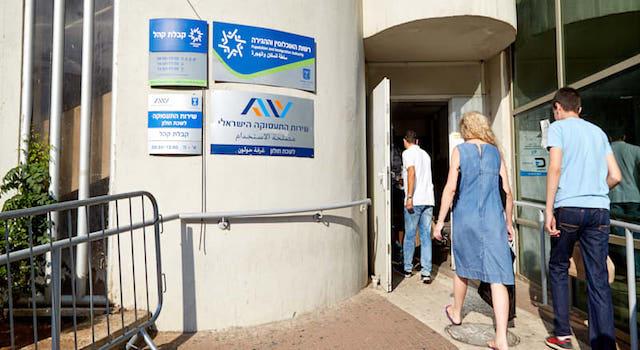The recent conflict between Israel and Hamas, sparked by a sudden and brutal attack by Hamas on October 7, has led to a challenging situation for Israel. During the ongoing war in Gaza, Israel's priority remains defeating the terrorist group and securing the return of its hostages. This situation, however, has significantly impacted the Israeli economy, particularly affecting employment and small businesses.
October's unemployment figures, as reported by the Central Bureau of Statistics (CBS), indicate a nearly 10% rise in joblessness due to temporary job loss, impacting around 428,000 Israelis. The war's immediate effect was felt most acutely in Israel's southern border towns, where Hamas launched its attack. In response, close to 400,000 Israelis were mobilized for reserve duty, and about 80,000 were placed on unpaid leave.
The employment rate in Israel, a key indicator of economic health, saw a downturn from 61.1% to 56.5% in October, illustrating the war's direct negative influence on the labor force. Notably, the construction sector has been the hardest hit, with over 62% of businesses facing the threat of closure. In contrast, sectors like high-tech and financial services have shown more resilience, with a comparatively lower 41% reporting revenue losses.
Across Israel, more than half of the businesses reported a decrease in income, with the southern and northern provinces experiencing the most severe economic impacts. In these areas, income losses were 66% and 64%, respectively. The construction and food and beverage industries were particularly affected, with over 70% of businesses in these sectors reporting income losses.
As the war in Gaza continues, the Israeli job market slowly grinds to a halt, reaching 2021 COVID lockdown levels.https://t.co/yQ6LrvezLa
— The Judean (@TheJudean) November 19, 2023
Small businesses, often the backbone of the economy, have been significantly damaged since the conflict began. These smaller enterprises, with 10 or fewer paid employees, saw a 57% drop in income, while larger businesses, employing up to 250 people, experienced a comparatively modest 14% decline. Additionally, 42% of small businesses are teetering on the brink of closure, compared to 15% of larger businesses.
As Israel navigates through these challenging times, economic forecasts predict a decline for the fourth quarter, along with a lower than anticipated overall growth rate. In response, Israeli policymakers and stakeholders are focusing their efforts on rebuilding and supporting the businesses most affected by the conflict. The government plans to implement measures like state-backed grants and loans, specifically targeting small and medium-sized businesses, and a special fund to support employee salaries.
Israeli stocks and bonds up, shekel dips after truce deal with Hamas #Israel | #Economy | #Gaza https://t.co/lWp4aHZTJ8
— The Jerusalem Post (@Jerusalem_Post) November 22, 2023
Furthermore, programs like the "Hayom Sha'achari Fund," (The Day After) managed by the Israel Center for Economic Advancement, are in place to provide aid. These include immediate emergency bridging loans and long-term business recovery planning, available to believers in Israel, encompassing groups such as Messianic Jews, Arab Christians, and Gentiles. These efforts underscore the commitment to bolstering the nation's economic stability and supporting its diverse communities during these testing times.


